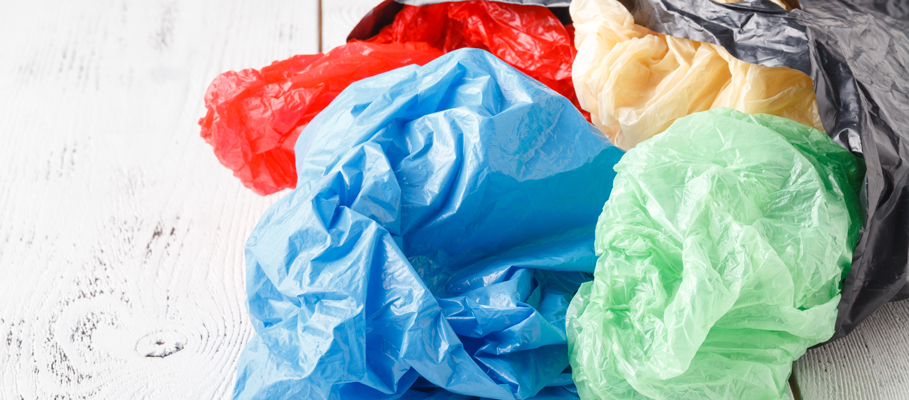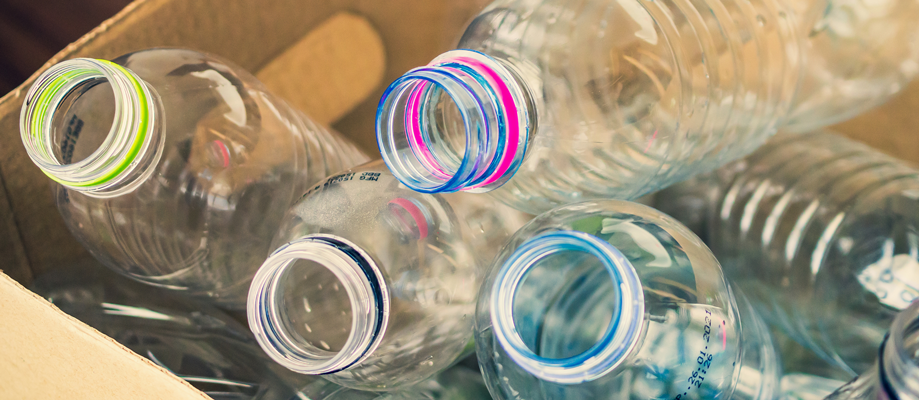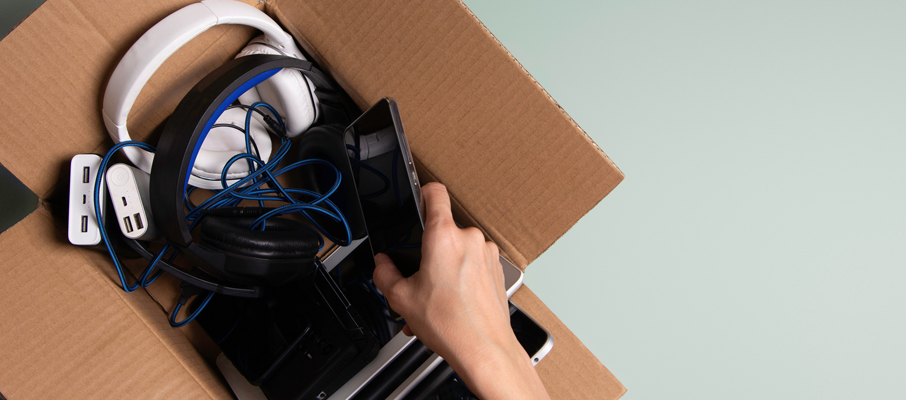How to correctly dispose of different types of waste
There are several types of wastes that businesses can generate through their activities, which are often disposed of incorrectly due to uncertainty on how to dispose of specific waste types. Even when people attempt to sort their waste, confusion about what can go in each bin can still cause items to be disposed of incorrectly.
It is important for businesses to understand the differences between waste types and how to dispose of them to prevent pollution, reduce greenhouse gas emissions from landfill, and avoid negative impacts on human health. This article discusses the ways to correctly dispose of different types of waste (with a handy downloadable flyer at the end), as well as waste disposal tips to help your organisation strengthen its environmental footprint.
General waste
General waste consists of items that will be sent to landfill, as they cannot be reused, recycled or composted. This includes:
- polystyrene and packing foam
- plastic bags and other soft plastics
- contaminated food packaging
- disposable coffee cups
- disposable cutlery
- fabric and textiles
- other general rubbish.
General waste should not be put in recycling or organic bins, as this can contaminate the load and cause the recyclables and compostable materials to end up in landfill.

Reusable materials
Certain materials can be recycled and reused to create new products. This benefits the environment by reducing greenhouse gas emissions, diverting waste from landfill, preventing pollution, and saving energy, water and natural resources.
Items that can be recycled vary between Councils, but generally includes items such as:
- paper and carboard
- hard plastics (e.g. bottles and containers)
- glass jars
- metal cans.
Check your Council’s specific requirements before putting items into your recycling bin to ensure that recyclables are not sent to landfill due to contaminated loads. It is also important to place recyclables loose in bins (not in bags) so they can be sorted correctly.
Certain types of bottles, cans and cartons can also be recycled through Container Deposit Schemes. These schemes allow a refund to be obtained from eligible containers by taking them to a collection depot or a reverse vending machine. Every state and territory in Australia has or will soon have a Container Deposit Scheme, read our article for an outline of each scheme.

Organic waste
Organic waste is organic material, such as food and garden waste, that can be broken down by micro-organisms and other living things. Organic waste that is sent to landfill produces the potent greenhouse gas methane, but these emissions can be reduced by recycling organic waste to produce compost.
Materials that can generally be disposed of in an organics bin include:
- fruits and vegetables
- meat
- dairy products
- cooked food scraps
- grain products
- garden organics such as clippings, dried leaves and weeds.
Check if your Council has any restrictions on what can be included in an organics bin. Collection services for organics vary between Councils and may include garden organics, food organics, or a combination of both. If your Council does not currently offer an organics collection service, you can compost the materials yourself, or check if there is a community composting site or community partners that can help remove and compost the waste.

Other types of wastes
Some materials cannot be disposed of in regular bins because they are hazardous or require specialised recycling so that valuable components can be recovered and reused. Keeping such items out of regular waste collection ensures that hazardous materials are not sent to landfill, do not enter the environment or harm human health, and allows resources to be properly and fully recovered.
Below is a selection of materials that require specialised disposal. Check the Business Recycling webpage for further information on how specific materials should be disposed of and to find a recycler near you.
- Agricultural and veterinary chemicals can be disposed of through the ChemClear program, and empty chemical containers can be recycled through DrumMUSTER
- Asbestos must be disposed of by an appropriately licensed asbestos removalist
- Computers and accessories can be recycled through an organisation that operates under the National Television and Computer Recycling Scheme
- A cooking oil bin can be obtained from a commercial oil recycler, who will collect used cooking oil on a regular basis
- Electronic waste (e-waste) can be taken to commercial recyclers or independent companies that offer e-waste recycling services (check Techcollect or Ecycle Solutions for drop-off locations)
- Take scrap metal to a scrap metal recycler
- Paint can be disposed of through commercial recyclers that offer paint recycling services, or through programs such as Paintback
- Polystyrene foam can be collected through specialised recycling services
- Find an accredited tyre recycler to dispose of tyres
- Some items can be disposed of through collection programs, such as batteries (e.g. B-cycle, Batteries 4 Planet Ark) printer cartridges (e.g. Cartridges 4 Planet Ark, Close the Loop) and mobile phones (e.g. MobileMuster)

Waste disposal tips
To ensure that your business correctly disposes of the different types of waste:
- check the specific waste management legislation in your state or territory, as waste management obligations and services vary between jurisdictions. The Waste and Council Laws categories of our online directory EnviroLaw can help you determine and comply with your waste disposal obligations
- check what types of waste your Council will accept
- ensure that employees are aware of and trained in waste management requirements
- provide separate bins for each waste type with clear signage and images so employees know which bin to use
- choose a recycler that is legally able to accept the material you want to dispose of
- look for the Australasian Recycling Label on products, which provides clear instructions on how to correctly dispose of each part of a product’s packaging.
Although it is important to dispose of waste correctly, the best option is to reduce the amount of waste generated by your operations. See the following links for information and tips on how to reduce waste in your business:
- Australian Government Webpage: Manage Business Waste
- Business Recycling Webpage: How to Reduce and Recycle Plastics at Work
- Business Recycling Webpage: Research and Resources
- Clean Up Australia Webpage: We Can Still Reduce Our Waste While WFH
- Department of Climate Change, Energy, the Environment and Water Webpage: Working in the Office.

– Help your office dispose of waste correctly with this handy flyer –
Sources
- Council Webpages – check your Council for specific waste disposal information
- ACT City Services Publication: What Goes in Your Household Bins?
- APCO Webpage: The Australasian Recycling Label Program
- Australian Government Webpage: Manage Business Waste
- Department of Climate Change, Energy, the Environment and Water Publication: National Waste Policy
- Department of Climate Change, Energy, the Environment and Water Publication: The Australian Recycling Sector: Key Findings
- Department of Climate Change, Energy, the Environment and Water Webpage: National Organic Waste Profile
- Department of Climate Change, Energy, the Environment and Water Webpage: Recovering Organic Waste
- EPA NSW Webpage: What Materials Can My Business Recycle?
- Planet Ark Webpage: Business Recycling
- Planet Ark Webpage: Recycling Near You
- Sustainability Victoria Webpage: Avoid Food Waste at Home
- Sustainability Victoria Webpage: Check What Goes into Your Bins on Your Council Website
- Veolia Publication: Understanding Your General Waste Bin
- WA Waste Authority Webpage: WA’s A-to-Z Recycling Guide
- World Bank Publication: What a Waste 2.0: A Global Snapshot of Solid Waste Management to 2050
- World Health Organisation Webpage: Guidance on Solid Waste and Health